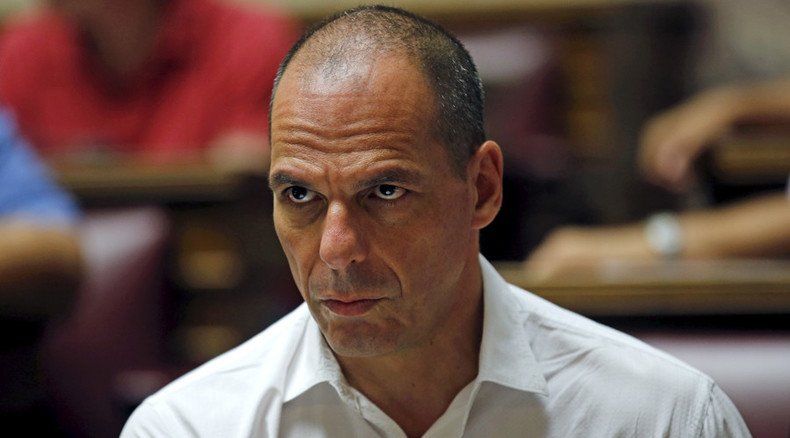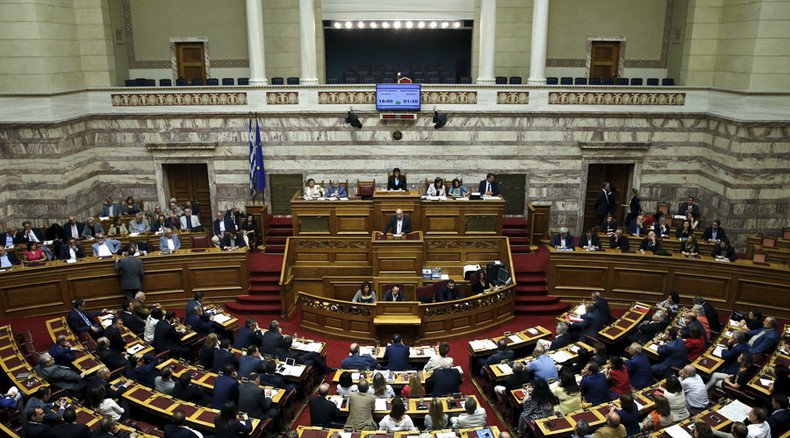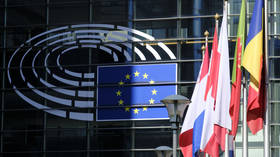‘Greatest disaster’: Varoufakis says new Greek bailout doomed

Former Greek Finance Minister Yanis Varoufakis has warned that the economic reforms from Greece’s debt holders are doomed to fail. The assessment comes as PM Alexis Tsipras has reshuffled his cabinet in efforts to secure a third bailout package.
The EU is preparing to start talks with Athens on a third bailout which could reach €86 billion ($93 billion), but the reform program laid down by Brussels as a precondition for the bailout will "go down in history as the greatest disaster of macroeconomic management ever," Varoufakis told BBC.
“This programme is going to fail whoever undertakes its implementation,” he said. Asked when will it fail, he replied, “It has failed already.”
Varoufakis stressed that in given conditions Prime Minister Alexis Tsipras, who himself does not believe in the bailout, had little option but to sign the agreement. “We were given a choice between being executed and capitulating. And he decided that capitulation was the ultimate strategy,” Varoufakis said.
On Saturday, new cabinet ministers were sworn in after Tsipras replaced hardliners in his government, following the agreement with the EU creditors.
Energy Minister Panagiotis Lafazanis and his two deputies were sacked. Lafazanis has been replaced by Panos Skourletis, who initially appointed the Minister of Labour and Social Solidarity in January.
The reshuffle marked “an adjustment by the government to a new reality,” said Skourletis.
Germany’s parliament approved the beginning of the talks on a third Greek bailout on Friday. In order to secure it, Greece will have to implement further unpopular austerity measures.
“Our aim is to negotiate hard for the terms of the agreement, not just to seal it, but on how it will be implemented. There are many vague terms in the text," George Katrougalos, who was appointed Labor Minister in the latest reshuffle, told RT.
Katrougalos said that the end of austerity is “the only realistic promise,” because “austerity feeds recession.”

“It is the balance of power at the European level that forces us to accept the agreement, because an alternative would be a continuation of the closure of the banks and practically the sudden death of our economy,” said Katrougalos, adding that the Greek government is not happy with the agreement that has been enforced upon the country.
Katrougalos said that by agreeing with Europe, the Greek government was not backtracking from its promises to the people and that the public referendum that rejected the EU’s tough conditions was necessary to show the European elites that there are alternatives to their economic policies.
Another aim of the referendum was to “protect our government from a soft coup d’etat that aimed to overthrow us,” Katrougalos told RT.
“We hope that in the future we can have a better balance of power [within Europe] to shift the existing one in the favor of the progressive, social Europe,” Katrougalos concluded.
The EU-Greece talks are not going to be easy and will take up to four weeks, warned the head of the eurogroup of finance ministers, Jeroen Dijsselbloem.















